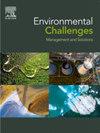The role of technological innovation in sustainable growth: Exploring the economic impact of green innovation and renewable energy
Q2 Environmental Science
引用次数: 0
Abstract
This study investigates the evolving association between green innovation, technological development, renewable energy, and sustainable economic growth through using econometric technique aimed at minimizing environmental impacts and improving economic growth. Utilizing annual data from 1990 to 2023, this study employs a rigorous econometric framework to ensure robust analysis. The methodology includes Augmented Dickey-Fuller (ADF) and Phillips-Perron (PP) unit root tests to assess stationarity, followed by Autoregressive Distributed Lag (ARDL) modeling to capture both short- and long-run dynamics. To further validate the findings, Fully Modified Ordinary Least Squares (FMOLS) and Dynamic Ordinary Least Squares (DOLS) estimations are conducted, enhancing the reliability of the results. Our model demonstrates stability, validity, and reliability by the implementation of serial autocorrelation LM, Breusch-Pagan-Godfrey heteroskedasticity, CUSUM, and CUSUM squared. The findings indicate that green innovation, technological innovations, Foreign Direct Investment, and medium-high-tech exports enhance both short and long-run economic growth. These findings substantiate Sustainable Development Goals (SDGs) seven and furnish evidence that expands theoretical frameworks, emphasizing the significance of green innovation, technological innovation, and export competitiveness in economic development. The study further indicates that the long-term effects of renewable energy on economic growth are adverse, suggesting inefficiencies or sector-specific issues. Furthermore, the economy demonstrates resilience as exogenous shocks progressively stabilize at 36% over time. The country requires a holistic strategy to enhance technological innovation and export competitiveness, foster green infrastructure and advanced industries, address inefficiencies in the renewable energy sector, and implement regulatory measures to ensure sustainable economic growth and drive green innovation.
技术创新在可持续增长中的作用:探索绿色创新和可再生能源的经济影响
本文运用计量经济学方法,探讨了绿色创新、技术发展、可再生能源与可持续经济增长之间的关系。本研究利用1990年至2023年的年度数据,采用严格的计量经济学框架来确保分析的稳健性。方法包括增强Dickey-Fuller (ADF)和Phillips-Perron (PP)单位根检验来评估平稳性,然后是自回归分布滞后(ARDL)模型来捕捉短期和长期动态。为了进一步验证研究结果,进行了完全修正普通最小二乘(FMOLS)和动态普通最小二乘(DOLS)估计,提高了结果的可靠性。通过实现序列自相关LM、Breusch-Pagan-Godfrey异方差、CUSUM和CUSUM平方,我们的模型证明了稳定性、有效性和可靠性。研究结果表明,绿色创新、技术创新、外商直接投资和中高技术产品出口对短期和长期经济增长均有促进作用。这些发现证实了可持续发展目标(SDGs) 7,并提供了扩展理论框架的证据,强调了绿色创新、技术创新和出口竞争力在经济发展中的重要性。该研究进一步表明,可再生能源对经济增长的长期影响是不利的,表明效率低下或行业特有的问题。此外,随着时间的推移,外源冲击逐渐稳定在36%,经济表现出了弹性。该国需要制定整体战略,加强技术创新和出口竞争力,培育绿色基础设施和先进产业,解决可再生能源领域的低效率问题,并实施监管措施,确保经济可持续增长,推动绿色创新。
本文章由计算机程序翻译,如有差异,请以英文原文为准。
求助全文
约1分钟内获得全文
求助全文
来源期刊

Environmental Challenges
Environmental Science-Environmental Engineering
CiteScore
8.00
自引率
0.00%
发文量
249
审稿时长
8 weeks
 求助内容:
求助内容: 应助结果提醒方式:
应助结果提醒方式:


